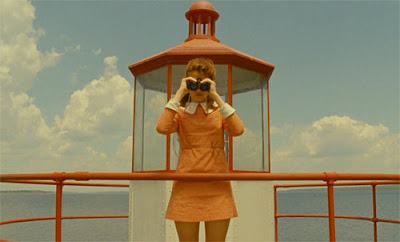Yesterday on Twitter, a number of the film critics I follow/follow me got around to posting their favorite films of 2012 so far. Curious to see what was the favorite, I aggregated the
1. Moonrise Kingdom (Wes Anderson, USA) - 73 points/23 mentions
2. Once Upon A Time in Anatolia (Nuri Bilge Ceylan, Turkey) - 29 points/7 mentions
3. The Deep Blue Sea (Terrence Davies, UK) - 26 points/11 mentions
4. Haywire (Steven Soderbergh, USA) - 26 points/10 mentions
5. The Kid With A Bike (Jean-Pierre and Luc Dardenne, Belgium) - 24 points/8 mentions
6. The Turin Horse (Bela Tarr, Hungary) - 20 points/8 mentions
7. Damsels in Distress (Whit Stillman, USA) - 16 points/5 mentions
8. This Is Not A Film (Jafar Panahi, Iran) - 14 points/5 mentions
9. Cabin in the Woods (Drew Goddard, USA) - 13 points/5 mentions
10. The Color Wheel (Alex Perry Ross, USA) - 13 points/3 mentions
11. Miss Bala (Gerardo Naranjo, Mexico) - 10 points/3 mentions

